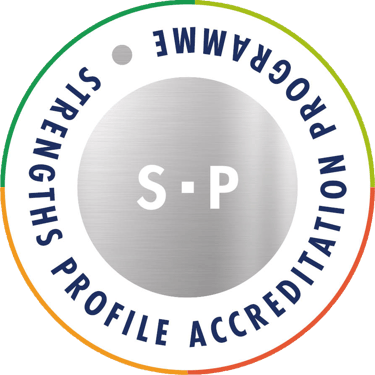6 ways to avoid job search overwhelm
JOB SEARCH OVERWHELM is real. You start your job search with energy, optimism and hope. And then one day you realise you're exhausted. You've reached job search overwhelm. It's time to refocus. Read on for six things you can do to reduce the overwhelm and build your resilience.
CAREER CHANGE SUCCESSCAREER CLARITYSTRENGTHS COACHING


Job search overwhelm is real.
Especially following redundancy or another career transition that sees you temporarily unemployed.
You feel pressure to secure your new role as soon as possible (because then you can relax and enjoy some time off before starting it).
You start your job search with energy, optimism and hope.
You treat your job search 'like a job'.
All day, every day. Applying for roles, talking with recruiters, researching companies, tailoring your CV, networking - etc, etc, etc.
And then one day you realise you're exhausted.
You can't face another application, another ghosting, another 'Thanks, but no thanks', another question from family and friends about your job search.
You've reached job search overwhelm.
It's time to refocus.
Read on for six things you can do to reduce the overwhelm and build your resilience.
1 Employ your strengths.
Your strengths are those things that you really enjoy doing. They give you energy. You feel motivated and resilient when you’re able to use them.
Conversely, things that are not strengths for you will drain your energy.
Knowing what gives you energy and what drains it, and being able to change how you’re managing your job search could be the answer to avoiding overwhelm.
An example:
Your strengths are primarily in the Communicating and Relating families but you’re spending your days sitting at your desk trawling job ads and submitting applications, barely speaking to anyone. This is likely to feel exhausting and demotivating.
So you add in networking – conversations with ex-colleagues, recruiters, people who work in organisations you’d love to work for – and you start to feel much more energised and motivated. You bank some energy for those times you do need to sit at your desk and focus on job applications.
And while you’re looking at your strengths, ensure you’re clear on which ones you want to use in your new role.
Not sure what your strengths are?
Get your free Starter Profile here
2 Focus
Especially at the start of your job search, it’s easy to apply for as many jobs as you can. You have a CV and you submit it for any job you can do. You measure your success on the number of jobs you apply for each week and feel good when it’s a high figure.
BUT – then you realise you’re getting auto-rejections, or no response at all from most of them. When you do get an invitation to interview, maybe it’s for a job you’re not really that excited about. But it’s an interview, right?
You’re also getting overwhelmed by the number of job alerts you’re receiving, with your phone pinging at you non-stop all day. It was great at first (Hurrah! Another job to apply for!) but now you want to run away from it.
Now it’s time to focus on quality over quantity.
Decide what type of job you really want, for which type of organisation, where, etc.
Identify your ‘essential criteria', boundaries and red lines, for example: commuting time / flexible working / Board diversity / purpose and values.
Turn off job alerts for anything that doesn’t match what you want, and for those you’re keeping review how you’ll be notified. Do you need in-app notifications and emails?
Go through your saved jobs and remove any that don’t match what you want.
Rewrite your CV, filling it with only those things you really want to do again.
Commit to tailoring your CV for every application. Once you’re only applying for jobs you’re interested in this becomes much easier!
Be clear with Recruiters about what you want and don’t want.
Update your LinkedIn profile to be clear about what you’re looking for.
Doesn’t that feel better already?
Some blogs to help you with these steps
3 Ensure clarity
Are you searching and applying for the jobs you really do want? I often find that when people stop to do the activities in 1 and 2, they have a lightbulb moment. They realise they’ve been applying for jobs just like the one they’ve left when actually they want something completely different.
So go back to steps 1 and 2 and have a think about what you really, really want to do.
What work will enable you to use your strengths?
Which organisation / sector / industry will enable you to work in alignment with your values?
Which boundaries do you want to put in place to protect what really matters to you?
What did you want to do before you fell into your career and got stuck there?
What interests do you have that you’d love to bring into your work?
What would you do if you were guaranteed success?
Spending your time and energy only applying for roles that will give you what you want, will make the whole process feel easier.
4 Create your job search strategy
Now you’re clear about what you want, and why, you can start to really hone in on finding your next role.
Identify the best places to search. LinkedIn is an obvious place, of course. Where else? What about industry / sector-specific job boards? Professional bodies often have a jobs board on their website. You can often set up alerts on an organisation’s careers page.
Identify recruiters who specialise in the work you want. Arrange to talk with them and assess if they’re a good fit for you. How will they represent you? How will they keep in touch with you? How many roles do they have available, or in their pipeline, that meet your wants? By focusing on quality over quantity you’ll find it easier to build and maintain a good working relationship with the people who can help you find your next role.
Use your network! People you already know can be a really valuable source of information and referrals. Think about ex-colleagues you enjoyed working with – where are they now? Would you like to work there? Get in touch with them. Where do family and friends work? Once you’ve identified companies you’d like to work for, use LinkedIn – Follow the company page and interact with its content, Connect with some people in similar roles and in the Recruitment / Talent team and arrange to talk with them. This has the benefit of enabling you to gain more insight into the organisation than you’ll get from a website or even a recruiter.
5 Make time for fun
There is a saying that looking for a job is a full-time job, and many people tell me they feel guilty if they take time out from it. At the same time, you need regular breaks to recharge, and when those breaks are fun you’ll feel even better and be able to build your resilience.
What do you enjoy doing, that you’ve been neglecting because of your job search? Whether it’s meeting a friend for a coffee, exercising, meditating, sewing, gardening – if you realise you haven’t done something for a while because you’ve been too busy and / or feel guilty about taking time out – now is the time to start it again.
If you’re feeling really overwhelmed you may need to take a week or two away from your job search, or at least ‘dial down’ the time. Please don’t feel guilty, you’re not a robot and we all need a break at times.
6 Plan your job search routine
Many people tell me they miss the routine of work during a period of unemployment. They may feel they’re drifting, and they’re definitely exhausted by the feeling they need to be job-searching all day, every day.
So create yourself a routine, maybe a weekly planner.
What and when, is the optimum time for you to work on your job search?
How often do you need to take a break, to be able to maintain your focus and energy?
What revitalising activities do you want to build in to your day / week? When is the optimum time for you do them?
Who can support and motivate you in your job search and in sticking to your plan?
How will you celebrate your progress?
You can only do, what you can do. These six steps will enable you to feel more in control of your job search while reducing the overwhelm that comes from lack of clarity, focus and fun.
Building and maintaining your resilience is a lot about understanding what’s in your control.
Hi, I'm Karen Felton
I love enabling people to understand their strengths and values, so they know what they want to do in their career and in their life and can find work that makes them happy.
When you understand your strengths and values, everything becomes clear and you can take your next steps with renewed confidence.




